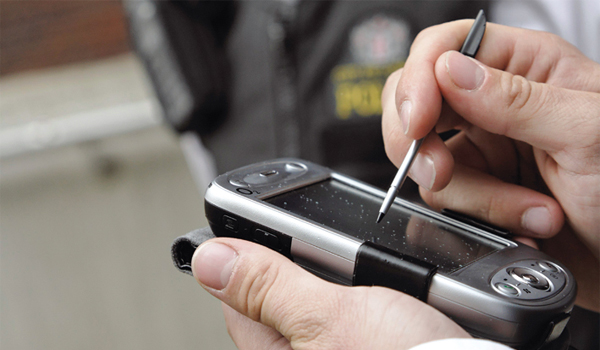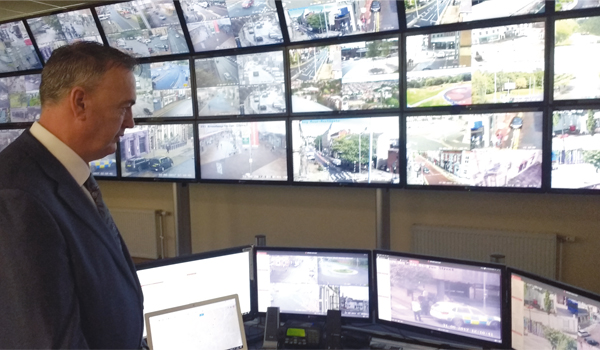Connected officers enable a safer smart city
The electronic systems company Thales unveiled its connected police officer for smart cities at the recent Critical Communications World conference in Amsterdam.
The electronic systems company Thales unveiled its connected police officer for smart cities at the recent Critical Communications World conference in Amsterdam.
It showed how the operational efficiency of security forces can be optimised by the ability to access information in real-time, no matter where the officer is and no matter what the scenario.
In a smart city, a police officer will be able to securely share, and have access to, a variety of information sources in real-time, such as voice, video, picture, identity information, location, etc, with its group members and the command and control centre to enhance situational awareness beyond todays voice-centric operations.
Smart devices such as smartphones, smart watches and smart glasses will improve ways to seamlessly communicate and exchange via intuitive interfaces. Smart sensors (location, movement and vital signs) will ensure that every officer is located and monitored for more efficient responses and improved safety.
Thales says a smartphone, for example, could be the local hub for all sensors on the field, creating a connection between the officer and the command centre. By combining all these innovations, the connected officer would significantly contribute to a safer smart city.
Not only does the police officer have the capacity to make informed and effective decisions to respond quickly to incidents, but Thales says they also have the heightened ability to prevent and foresee threats, thus improving the overall performance of security forces and improving public safety.
Thales is also driving advances in professional mobile radio (PMR) with the Fed4PMR project, a laboratory for future secure high-data-rate 4G/ LTE (long-term evolution) radio communications to meet the needs of security agencies and the emergency services and to allow for images, videos and data to be shared securely.
The project aims to provide innovative responses to ensure the successful transition of voice-only communications to the next-generation mission-critical 4G/LTE systems, while guaranteeing the necessary network security and resilience.
PMR networks play a crucial role in protecting people and property, offering specific mission-critical functionality, such as group calls and push-to-talk, and guaranteeing high availability in emergency situations.
The Fed4PMR project will define a unified broadband PMR system spanning everything from user terminals to network operation. The solution will combine multiple types of access networks (dedicated networks, virtual mobile networks and temporary networks) in a single infrastructure. This infrastructure will be used to deliver multi-media-enabled PMR services, including real-time transmission of pictures and video, database lookups and other professional applications, to meet the needs of users conducting critical missions in difficult situations.
Thales has formed a consortium with seven SMEs (small and medium-sized enterprises) and researchers at Pierre et Marie Curie University in Paris to develop the technology.




